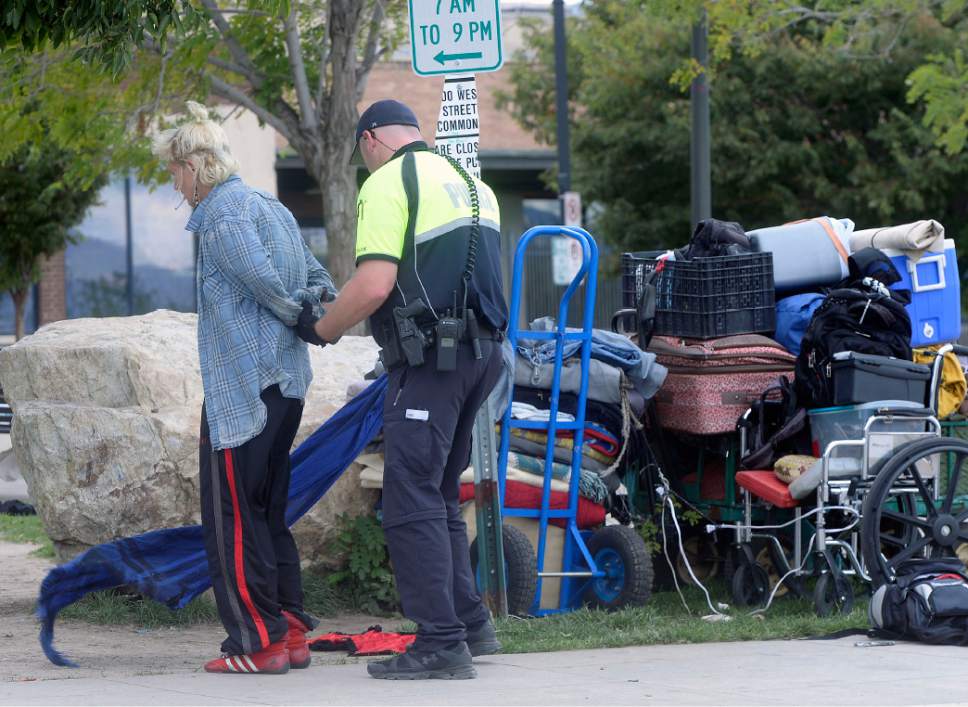This is an archived article that was published on sltrib.com in 2017, and information in the article may be outdated. It is provided only for personal research purposes and may not be reprinted.
The House voted Tuesday to stop most, but not all, Utah cities that now offer financial incentives to landlords who do not rent to people with criminal records — a practice that some see as contributing to the state's homelessness crisis.
Representatives passed HB178 by a 62-9 vote, sending it to the Senate. But it passed an amendment to exempt Ogden and West Valley City from the change.
Currently, a dozen cities in Utah operate "good landlord" programs that give landlords discounts on fees if they agree not to rent to people with felony convictions.
For example, Ogden officials say they charge a $7 per unit fee for large apartment complexes that participate in its good landlord program — which includes a ban on renting to released felons — and charge $82 per unit for others.
House Minority Leader Brian King, D-Salt Lake City, the bill's sponsor, said such practices are unfair to people who have paid their debt to society.
"We need to move in a direction to allow our inmates who come out of jail and prison to get on their feet as quickly as possible." Not doing that increases recidivism of crime and homelessness, he said.
Rep. Steve Eliason, R-Sandy, said he is a landlord. "According to some cities, I'm not a good landlord because I give some people a second chance. So they charge me more if I want to give that person a second chance."
He said the landlord programs increase homelessness. "We say we've got to solve the homeless problem, but don't rent to people who are often homeless because of poor past decisions who are trying to turn their lives around. Don't put them in my city. Let's just put them in a different city. Let's just keep them in a shelter."
Rep. Jeremy Peterson, R-Ogden, amended the bill to exempt Ogden and West Valley City because they operate halfway houses — which he says leads to a greater concentration of former criminals there in some neighborhoods.
"The state chose to put 50 percent of all our halfway house beds in Ogden," and residents often stay nearby once released, he said.
"The neighborhoods became very unsafe, so the good landlord program was created in Ogden to help geographically spread that population," he said.
It recently created a pilot program to give those in the good landlord program a waiver if they rent to former criminals who have been vetted by corrections officials as fully complying with parole. His amendment will allow that to proceed.



